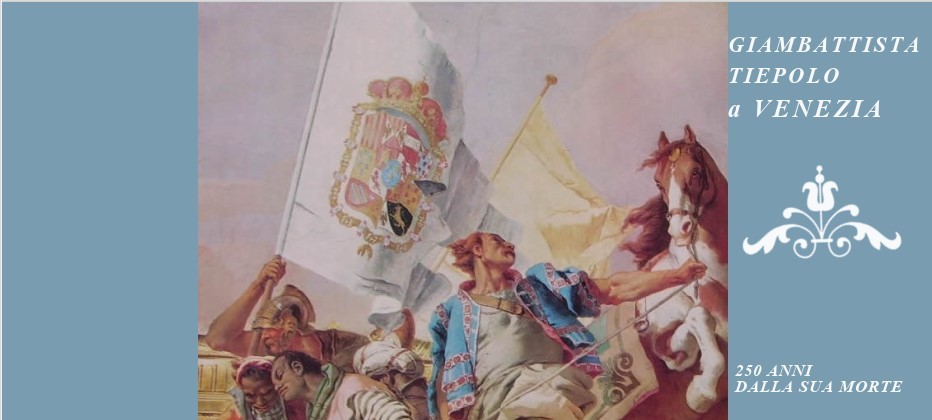Giambattista Tiepolo in Venice
250 years since his death
Last March 27th marks an important anniversary for Venice and for all Art: the 250th anniversary of the death of Giambattista Tiepolo, one of the most important Italian painters of the 18th century who brought back up the Venetian pictorial tradition.
Tiepolo was born in Venice in 1696 and died in Madrid on 1770. He had big success and fame not only in his homeland but also in many other European counties where he created masterpieces of all kinds: immense canvases, frescoes, drawings and engravings.
His “artistic itinerary” embraces Europe from south to north, from east to west and goes from Venice to Milan and Stockholm, from Madrid to Dresden.
In the Royal Palace of Charles III in Madrid, he painted the colossal Throne Room with the sumptuous “Apotheosis of the Spanish Monarchy”.
In Germany, precisely in Bavaria, he frescoed the residence of Prince Bishop Charles Philip of Franconia in Würzburg with the “Stories of Federico Barbarossa” in the Emperor’s Hall as well as the impressive and immense ceiling of the Staircase of Honor (570 square meters).
These masterpieces astound you. Bright colors, irony, humor, luminous illusions, a strong inventiveness are the hallmarks of this magician of the brush.
As a skilled set designer, he testifies to the change in values of the society of his time.
He invented his own technique, made up of quick and loose brushstrokes that give life to dynamic forms and incredible imaginary spaces that break through and expand the walls and vaults that host them. Tiepolo’s masterpieces embrace different styles, forms and techniques (from paintings with historical, religious and mythological subjects, up to caricatures).
In the Venetian Palazzo Labia, just a stone’s throw from the Hotel Carlton on the Grand Canal and now the RAI headquarters, Giambattista Tiepolo frescoed the ceiling of the monumental Ballroom. Here he created the beautiful cycle dedicated to the “Stories of Antonio and Cleopatra” with historical figures in contemporary clothes and an extraordinary “trompe l’oeil” technique that literally breaks through the ceiling and connects the observer’s gaze directly to the sky.
Even the Church of “Santa Maria di Nazareth”, also known as the Scalzi Church, adjacent to the Venice train station and just 100 meters from the Hotel Carlton on the Grand Canal, was entirely frescoed by Giambattista Tiepolo. However, in 1915, immediately after Italy entered the war, enemy aircraft bombed the Church and what remains of Tiepolo’s works is now in the Accademia Galleries.
The style of the Venetian Master is imposing, monumental, celebratory and pervaded with a fine irony at the same time.
There are many commemorative tributes, shows and exhibitions especially created for this anniversary and extended into 2021, given the particularly difficult moment due to Covid-19.
Do not miss it!


 HOTEL CARLTON CAPRI
HOTEL CARLTON CAPRI LA CUPOLA RESTAURANT
LA CUPOLA RESTAURANT TOP OF THE CARLTON SKY LOUNGE
TOP OF THE CARLTON SKY LOUNGE HOTEL CARLTON ON THE GRAND CANAL
HOTEL CARLTON ON THE GRAND CANAL





















